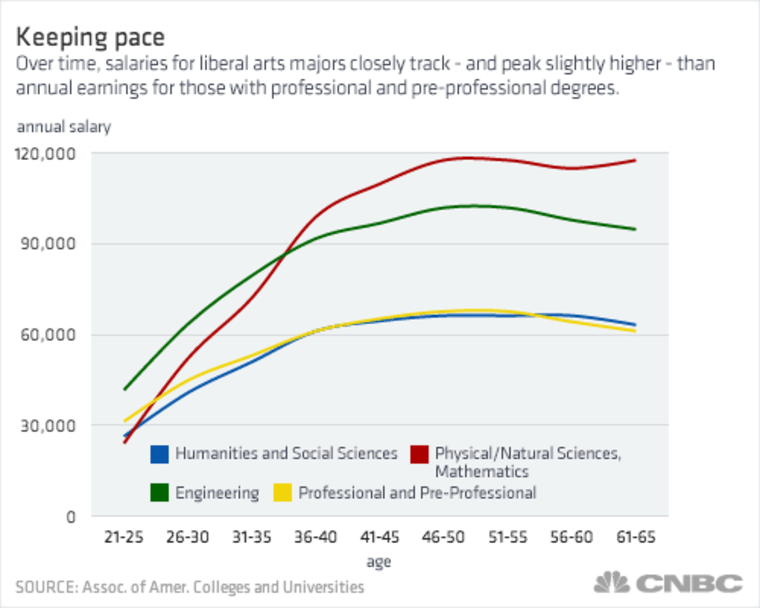Turns out English majors aren't doomed to work for Starbucks wages for the rest of their lives.
While liberal arts majors typically have a harder time finding jobs and make less than their college classmates in other fields, they close much of the salary and unemployment gap over time, a new report shows.
"That's a myth out there—that somehow if you major in humanities, you're doomed to be unemployed for the rest of your life," said Debra Humphreys, a co-author of the report and a policy analyst at the Association of American Colleges and Universities. "This (study) suggests otherwise."
Using Census data, Humphries found that over the long run of their careers, liberal arts majors eventually catch up with—and slightly outearn—classmates with professional and pre-professional degrees. But it takes an advanced degree to close the gap.
To be sure, liberal arts majors still earn significantly less throughout their lives than math and science grads, who are pulling in about $87,000, on average, by their late 50s. Engineers end up on top of the salary scale, making peak salaries of $98,000.
